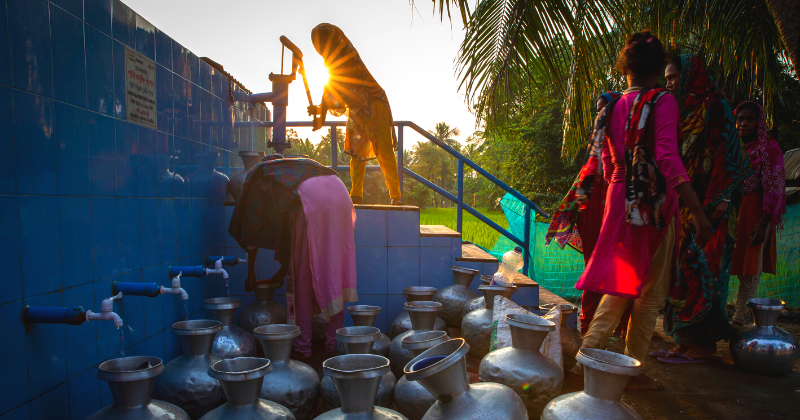It is a sound basic assumption that people closest to systemic issues are best placed to lead efforts around monitoring, evaluation and learning of those issues. One of my colleagues put it quite eloquently when he said, “we have the burden of proof for subsidiarity, if we take away agency from somewhere we need to prove that this is better for the people involved, rather than the other way around”. So, I will spare you any further elaboration on why this is an important topic.

360 Monitoring Evaluation and Learning
Porticus, a family philanthropy with on-the-ground presence in six regions in the world, also grapples with the question of how to localise MEL. Within Porticus, the 360 Philanthropy team works on an all-round vision of philanthropy, combining insight, inclusion and impact. This 360 vision also applies to our MEL practice, trying to be conscious of who is involved and what feedback mechanisms are in play to create a more circular instead of vertical approach. Now, what does this look like for us?
In true MEL practice: our goal is…
The purpose of MEL is to learn and improve, therefore MEL is in service of the organisations that lead the work as well as those that will benefit from that work in the future. Specifically, Porticus has committed itself to a goal that “By 2030, grant partners should lead MEL design and implementation for programmes and grants.” In other words, we do not believe decisions on what is needed should be the sole preserve of funders. Ideally, MEL becomes an integral part of philanthropic funded work, not an add-on, underfunded and administrative burden, where outsiders ask questions and grant partners supply answers. If you stand back far enough, then this is simply good common sense, and not just a moral obligation.
Learning partners that truly partner
In the meantime, and to strengthen capacity for MEL, we work with MEL partnerships, or “learning partners” as we would like to call them. These learning partners support a programme or grant from beginning until end (often for three years), so that programme and learning partners can design the intervention together. This way, learning partners play a more active role in the programme, which goes much further than the traditional evaluation consultancy. We have about 40 learning partners in Porticus, and in the selection process (which we do together with programme partners), we prioritise organisations with local or regional presence. The real challenge is finding these organisations in the first place, and as a result only approximately 30 per cent of our learning partners are based in the Global South. A complication is that a lot of our work spans different geographies, and hence we tend to rely on organisations with a more international footprint or network. Yet, in these cases we do pay close attention to team composition, fees between team members and the participatory and inclusive approaches proposed.
360 conclusion
In Porticus, we realise that we need to take risks to allow new actors to work in this space, as otherwise we are creating barriers for localisation. Furthermore, we need to shift to a practice where grantee partners have more time (less burdensome grantmaking!), resources (more flexible funding!) and capacity (supportive learning partners!) for MEL. I look forward to discussing this and more with others in the upcoming panel event hosted by Itad on Localising MEL, and in true 360 spirit I invite others to add to this perspective by joining the event and contributing your views on whether MEL practitioners in the sector see more opportunities for fair partnerships that localise MEL.
And if you have any contacts in this area that you would like to share with us, then so much the better! We are all in this together, after all.
Marieke Hounjet is Director 360 Philanthropy, Porticus.

